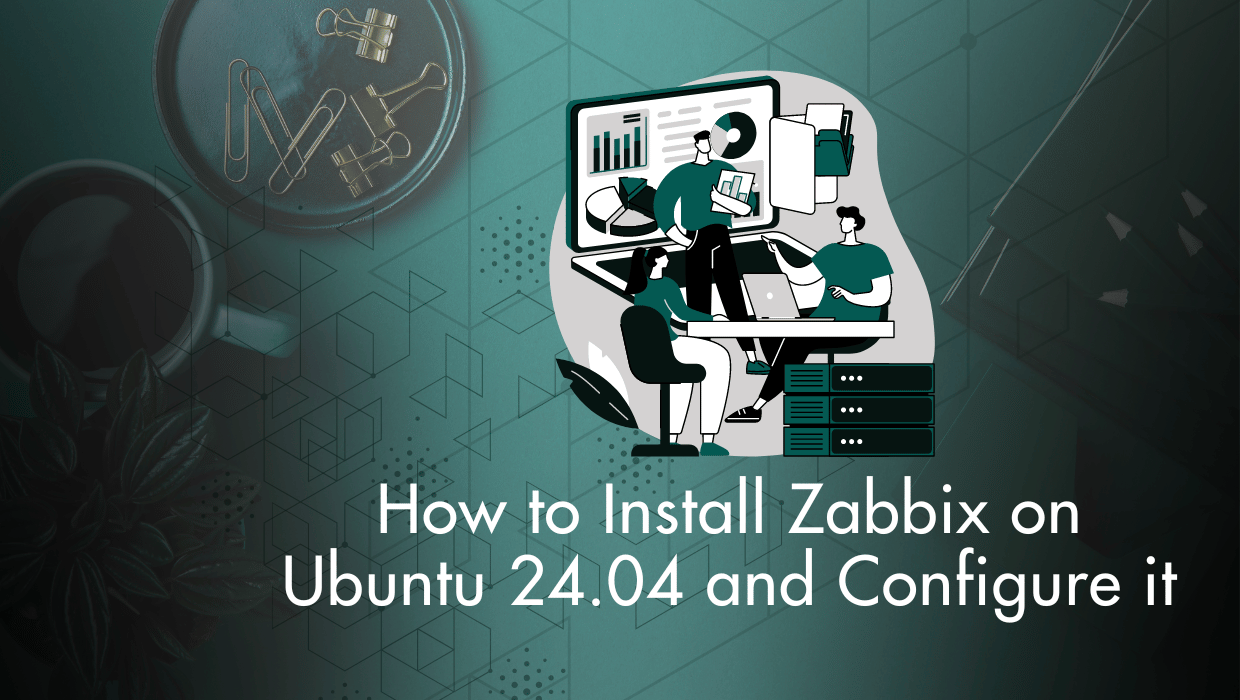In the following ultimate guide, we'll cover dozens of self-hosted alternatives to oftentimes expensive Software-as-a-Service (SaaS) web apps that you probably pay for on a monthly basis. By leveraging the power of your SSD Nodes VPS, you can run dozens of web apps and services for a fraction of the cost—you might even be able to completely negate the cost of your VPS. Plus, you get more customization and retain full control of your data.
All of these options are open source and free to use. A few have paid options for enterprises or those who need a managed experience or dedicated customer support, but there is always a free tier that you can download and install on your VPS.
If you're curious about what self-hosting is, be sure to check out our guide on the subject. For a comprehensive guide into creating your own self-hosting infrastructure, complete with HTTPS and the portability of Docker containers, read our definitive self-hosting handbook. This handbook
See the changelog at the bottom for more information about recent changes
Table of contents
- Instant messaging (Slack)
- File storage/synchronization (Dropbox)
- Blogs/content management systems
- Email (Gmail)
- Project management (Trello)
- Web analytics (Google Analtyics)
- Code repositories (GitHub)
- Calendars and contacts (Google Calendar/iCloud Calendar)
- Text/Markdown editors (Google Docs)
- Note-taking (Evernote)
- Backups
- RSS readers (Feedly)
- Bookmarking (Pocket/Instapaper)
- Commenting systems (Disqus)
- Time tracking (Harvest/Toggl)
Instant messaging
The most popular option in this category is Slack, although other systems like Google Hangouts and Skype could be replaced by these options.
Let's Chat: "Self-hosted chat app for small teams."
Mattermost: "Workplace messaging for web, PCs and phones. MIT-licensed. Hundreds of contributors. 11 languages. Secure, configurable, and scalable from teams to enterprise."
Rocket Chat: "The Ultimate Open Source Web Chat Platform."
Tox: "With the rise of government surveillance programs, Tox, a FOSS initiative, aims to be an easy to use, all-in-one communication platform that ensures full privacy and secure message delivery."
Zulip: "Zulip combines the immediacy of Slack with an email threading model. With Zulip, you can catch up on important conversations while ignoring irrelevant ones."
File storage/synchronization
Dropbox is the primary competitor in this space, followed by OneDrive, Google Drive, Box.com, and Sync.com.
Etherpad: "Etherpad is a highly customizable Open Source online editor providing collaborative editing in really real-time."
Nextcloud: "A safe home for all your data. Access, share and protect your files, calendars, contacts, communication & more at home and in your enterprise."
ownCloud: "A safe home for all your data. Access & share your files, calendars, contacts, mail & more from any device, on your terms."
Seafile: "Seafile is an open source, self-hosted file sync and share solution with high performance and reliability."
SparkleShare: "SparkleShare is a file sharing and collaboration app. It works just like Dropbox, and you can run it on your own server."
Syncthing: "Syncthing replaces proprietary sync and cloud services with something open, trustworthy and decentralized."
Blogs/content management systems
Self-hosted WordPress, naturally, is already a leader in this space, but other popular options include Squarespace, Medium, and Tumblr.
Grav: "Modern, Crazy Fast, Ridiculously Easy and Amazingly Powerful Flat-File CMS."
Ghost: "Ghost is a fully open source, hackable platform for building and running a modern online publication."
Jekyll: "Jekyll is a blog-aware, static site generator in Ruby."
KeystoneJS: "KeystoneJS is a powerful Node.js content management system and web app framework built on express and mongoose."
Refinery CMS: "An extendable Ruby on Rails CMS that supports Rails 4.2+."
Self-hosted email is a difficult category to pin down, as there's so many different components that go into feature-complete email system. Instead of trying to focus on all of the individual components—MTAs, SMTP servers, IMAP, webmail, and mailing list software—we're going to focus more on complete solutions that try to offer everything in one package.
Naturally, Gmail is the leader in this space.
docker-mailserver: "A fullstack but simple mailserver (smtp, imap, antispam, antivirus, ssl...) using Docker. "
- MIT
- Source
Shell- Last commit:
mailcow: "mailcow: dockerized - + = "
Mail-in-a-Box: "Mail-in-a-Box lets you become your own mail service provider in a few easy steps. It’s sort of like making your own gmail, but one you control from top to bottom."
Mailpile: "Mailpile is an effort to reclaim private communication on the Internet. A project to rescue our personal lives from the proprietary cloud and prevent our conversations from being strip-mined for corporate profit and government surveillance. Mailpile is taking e-mail back."
Mailu: "Simple yet full-featured mail server as a set of Docker images. The idea behing Mailu is identical to motivations that led to poste.io: providing a simple and maintainable mail server that is painless to manage and does not require more resources than necessary."
Modoboa: "Modoboa is a mail hosting and management platform including a modern and simplified Web User Interface. It comes with useful components such as an administration panel, a frontend for amavis or a webmail."
Mail-in-a-Box: "Kanboard is not for everybody, it's made for people who want to manage their projects efficiently and simply."
Project management
Trello and Basecamp are popular options specifically built for this purpose, but many other organizations put together custom solutions using a number of different applications.
Kanboard: "Kanboard is not for everybody, it's made for people who want to manage their projects efficiently and simply."
Restyaboard: "Open source. Trello like kanban board. Tasks, to-dos, chat, etc."
Taiga: "Taiga is a project management platform for agile developers & designers and project managers who want a beautiful tool that makes work truly enjoyable."
Wekan: "The open-source Trello-like kanban."
Web analytics
Google Analytics has been the leader in this space for years. Other popular options include analytics features built into various content management systems.
Fair Analytics: "An analytics server that doesn't undermine user's privacy."
micro-analytics: "Public analytics as a Node.js microservice, no sysadmin experience required."
Piwik: "Piwik is the leading open alternative to Google Analytics that gives you full control over your data."
Code repositories
For years, GitHub has been the primary place to host public or private GitHub repositories—for many the built-in community (stars, following developers) is a bonus. For those who don't want or need those features, or want to keep code completely secure, self-hosted is a viable option.
cgit: "A hyperfast web frontend for git repositories written in C."
Gitea: "Gitea is a community managed fork of Gogs, lightweight code hosting solution written in Go and published under the MIT license."
GitLab: "Open source software to collaborate on code."
gitolite: "Gitolite allows you to setup git hosting on a central server, with very fine-grained access control and many (many!) more powerful features."
Gogs: "A painless self-hosted Git service."
Phabricator: "Phabricator is a collection of web applications which help software companies build better software."
Calendars and contacts
AgenDAV: "AgenDAV is a CalDAV web client which features an AJAX interface to allow users to manage their own calendars and shared ones."
Baïkal: "Baïkal is a Cal and CardDAV server, based on sabre/dav, that includes an administrative interface for easy management."
Radicale: "Radicale is a free and open-source CalDAV and CardDAV server."
Text/Markdown editors
Most people do their text editing and writing via applications on their own computer, but hosted apps can connect directly to services like Dropbox and allow you to do real-time collaborative editing with friends or colleagues. Google Docs is the visible leader in this space.
Dillinger: "Radicale is a free and open-source CalDAV and CardDAV server."
Codiad: "Codiad is a web-based IDE framework with a small footprint and minimal requirements."
HackMD: "HackMD lets you create realtime collaborative markdown notes on all platforms. Inspired by Hackpad, with more focus on speed and flexibility."
Note-taking
Leanote: "Not Just A Notepad! (golang + mongodb)"
Backups
There truly is no one dominant solution for backups, particularly backing up the content of a VPS. In this list, we cover solutions that are installed on the VPS and then connect to external backup storage.
bareos: "Bareos is a 100% open source fork of the backup project from bacula.org."
Borg: "Deduplicating archiver with compression and authenticated encryption."
burp: "Burp is a network backup and restore program. It attempts to reduce network traffic and the amount of space that is used by each backup."
Duplicati: "Store securely encrypted backups on cloud storage services!"
UrBackup: "UrBackup is an easy to setup Open Source client/server backup system, that through a combination of image and file backups accomplishes both data safety and a fast restoration time."
RSS readers
Google Reader lives on in our hearts, and Feedly has done its best to fill the empty void. That said, many people miss the days of FeedBurner and other barebones tools that didn't get in the way of delivering RSS feeds.
Miniflux: "Minimalist web RSS reader."
NewsBlur: "NewsBlur is a personal news reader that brings people together to talk about the world. A new sound of an old instrument."
rss2email: "A python script that converts RSS/Atom newsfeeds to email."
Reader Self: "Self-hosted rss reader (php / mysql or sqlite) - Google Reader alternative."
selfoss: "The new multipurpose rss reader, live stream, mashup, aggregation web application."
Stringer: "A self-hosted, anti-social RSS reader."
Tiny Tiny RSS: "Tiny Tiny RSS is an open source web-based news feed (RSS/Atom) reader and aggregator, designed to allow you to read news from any location, while feeling as close to a real desktop application as possible."
Bookmarking
While many people use the bookmarking and synchronization features built into most modern-day browsers, others choose cloud services like Pocket or Instapaper.
bookmarks: "a simple self-hosted bookmarking app that can import bookmarks from delicious or chrome"
Firefox Sync Server: "This is an all-in-one package for running a self-hosted Firefox Sync server. It bundles the 'tokenserver' project for authentication and the "syncstorage" project for storage, produce a single stand-alone webapp."
Fresh RSS: "FreshRSS is a self-hosted RSS feed aggregator such as Leed or Kriss Feed. It is at the same time lightweight, easy to work with, powerful and customizable."
No Fuss Bookmarks: "No Fuss Bookmarks is a very simple software and service to store bookmarks especially designed for hackers (that don't need fancy interfaces, but nice API)."
Shaarli: "The personal, minimalist, super-fast, database free, bookmarking service."
Unmark: "An open source to-do application for bookmarks."
Wallabag: "wallabag is a self hostable application for saving web pages: Save and classify articles. Read them later. Freely."
Commenting systems
Aside from commenting systems that are built directly into content management systems, Disqus is the leader in this space.
commento: "A lightweight, open source, tracking-free comment engine alternative to Disqus."
- MIT
- GitHub
Go
HashOver: "HashOver is a PHP comment system intended as a replacement for services like Disqus."
isso: "A Disqus alternative."
Time tracking
Freelancers are probably aware of Toggl and Harvest, two of the more popular time tracking options.
timestrap: "Time tracking and invoicing you can host anywhere. Full export support in multiple formats and easily extensible."
Changelog
- 2018.08.10
- It's been a while!
- Improved the introductory text with more context and links to other Serverwise content published in recent months.
- Added Zulip to Instant messaging category.
- Started to remove the relative last commit times in favor of a date + "or more recent".
- 2017.08.31
- Added a new category: Email.
- Updated last commits.
- Instant messaging
- File storage/synchronization
- Blogs/content management systems
- 2017.08.02
- Added some new items: Fresh RSS, Wallabag.
- Added a new category: note-taking apps.
sed -i 's/Github/GitHub/g'`- Updated a number of last commits.
- 2017.07.19
- Added a new category: text/markdown editors.
- 2017.06.22
- Duplicati: Fixed the description.
- gitolite: Fixed the license entry.
- Shaarli: Fixed the license entry.
- Made the license entries as consistent as possible: GPL/AGPL/MIT/BSD 2-clause/etc.
- Updated existing last commit dates, added a few more, and started converting timestamps into relative time for easy reading.
- Removed GitHub stats—to difficult to maintain. Plus, popularity != quality.
- 2017.06.08
- Added a new category: backups.
- Updated last commit dates for blogs/CMSs.
- 2017.06.01
- Took a week off to push out our container preview!
- Added a new category: blogs/CMSs.
- Testing out more GitHub stats and last commit dates.
- 2017.05.18
- Added a new category: RSS readers.
- Added a new category: calendars and contacts.
- Testing out some GitHub watchers/stars stats!
- 2017.05.11
- Added a new category: web analytics.
- Added a new category: code repositories.
- Added Tox to instant messaging category.
- 2017.05.04
- Added Seafile to file storage/synchronization category.
- Added two new categories: bookmarking and commenting systems.
- 2017.05.03
- Initial version!
Are you a dev of a project you'd like to see featured here, or simply a fan of something we missed? Let us know in the comments or by getting in touch.


